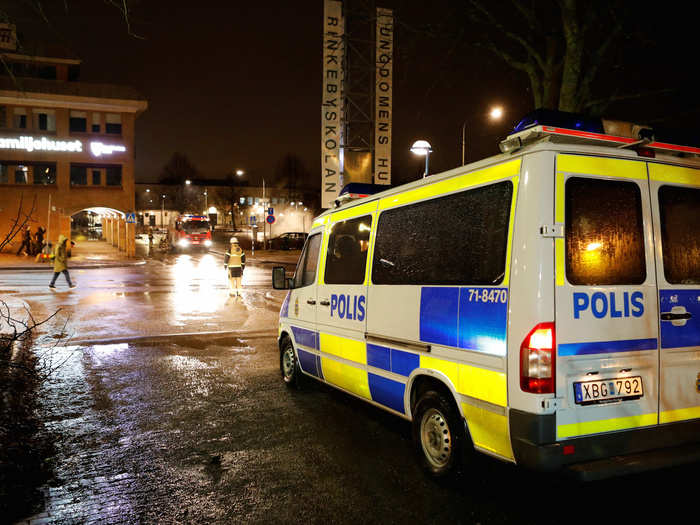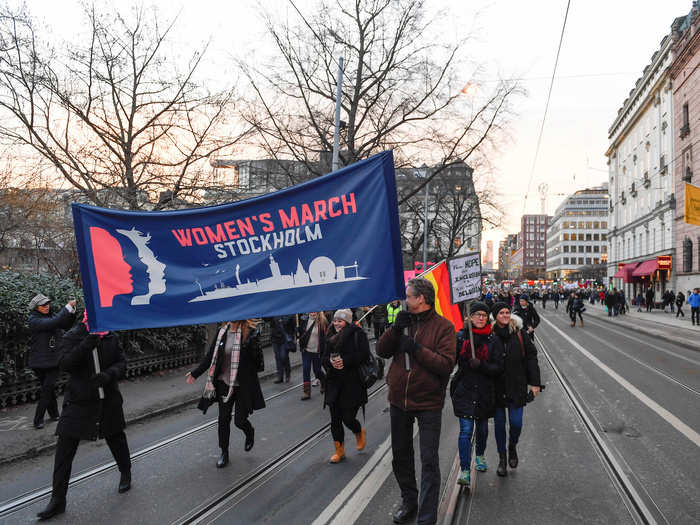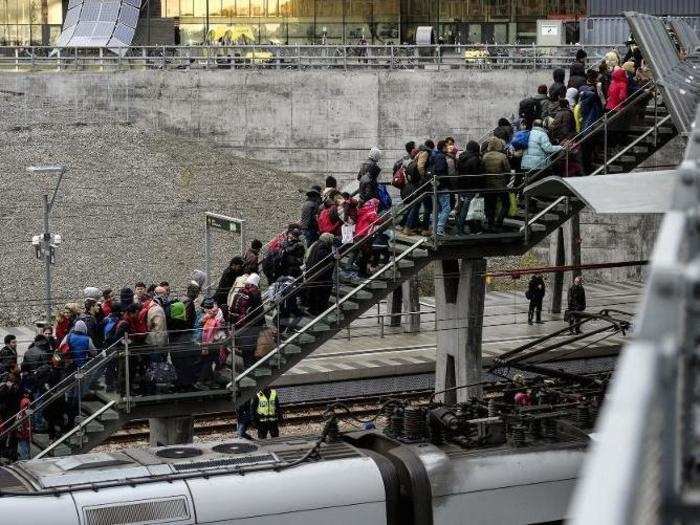Here's what's really going on with refugees and crime in Sweden
Doubt over the Fox News segment

Migrants and crime in Sweden

According to data and Swedish criminologists, there is no evidence of a massive crime wave driven by refugees and immigrants.
The 2016 Swedish Crime Survey did show a small uptick in crime in 2015, with 13.3% of nearly 12,000 respondents reporting they were exposed to one or more offenses, including assault, threats, sexual offenses, robbery, fraud, or harassment.
But although the number is up from 11.3% the prior year, the survey says the numbers remain around the same level as they did in 2005, well before Sweden's refugee influx began.
It's difficult to ascertain which demographics are most responsible for any small increases in crime — the Swedish government has refused to keep official data on criminals' races or nationalities.
But an analysis of crime statistics conducted by the Swedish newspaper Dagens Nyheter found that between October 2016 and January 2016, just 1% of more than 500,000 incidents police were called to involved refugees.
Combined with Sweden's relatively low crime rate, the statistics cast doubt on Horowitz's suggestion that refugees have driven a "surge" in crime.
Rather, individual instances of refugee or immigrant-related crime appears to bolster the idea that a "surge" is taking place. For example, riots erupted Monday night in a predominantly immigrant neighborhood in Stockholm.
After police entered the neighborhood to arrest a suspect, residents threw rocks at police, vandalized storefronts, looted, and set 10 cars on fire, according to police. The riots are still being investigated, but other than the initial suspect, no one has been arrested, The Washington Post reported.
Rape and sexual offenses

Rape and sex crimes in particular have drawn the attention of refugee critics such as Horowitz. During his Fox News interview, Horowitz said Sweden's open-door policy had resulted in an "absolute surge" in gun violence and rape cases, alleging that the Swedish government has "gone out of its way to cover up some of these crimes."
Yet the Swedish National Council for Crime Prevention has documented a 12% decrease in sex offenses reported to police between 2014 and 2015. In 2015, 18,100 sex offenses were reported, 5,920 of which were classified as rape. That represents a 12% decrease in reported rapes from 2014.
While a longer-term trend for reported rape offenses has risen since 2006, the council attributes this rise partly to legislation introduced in 2005 and 2013, both of which broadened the type of acts that could be classified as rape.
Adjusting to Sweden's mass refugee intake

Despite the ridicule with which many Swedes responded to Trump's comments on Saturday, the country has undeniably struggled at times with the amount of newcomers it attempts to integrate.
Employment is perhaps the most prominent issue — while just 5% of native-born Swedes aged 15 to 74 are jobless, foreign-born workers are three times as likely to lack employment, according to The Economist.
The Migration Policy Institute has found that newcomers' employment rates tend to improve over time, and their initial struggles are often due to the country's high minimum wages and lack of low-skilled jobs to offer. But some have argued that Sweden's high jobless numbers among immigrants have grown too large to avoid.
"Sweden, definitely, like other countries, [faces] challenges when it comes to integration of immigrants into Swedish society, with lower levels of employment, tendencies of exclusion, and also crime-related problems," Henrik Selin, director of intercultural dialogue at the Swedish Institute, told The Washington Post.
Popular Right Now
Popular Keywords
Advertisement